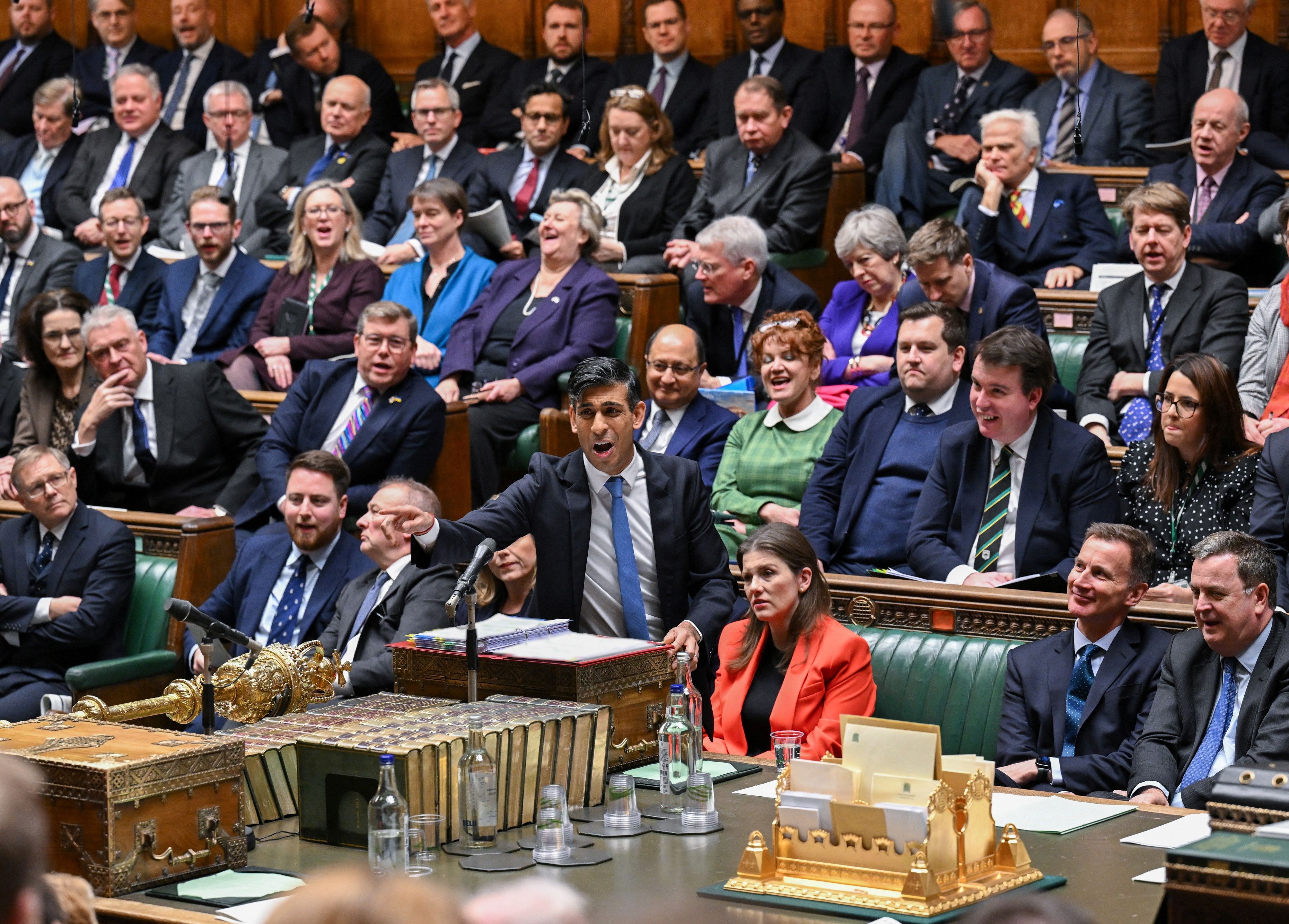For a PM with a Minister for Common Sense, Sunak’s bid to control what you do on YOUR phone is dim-witted

Prime Minister Rishi Sunak recently appointed a Minister for Common Sense ...but you could be forgiven for forgetting that given the recent push to control exactly what you can do on your phone
|GETTY IMAGES | GBN

Overruling planned features from teams at Google, Apple, and Facebook is about as far from the dictionary definition of "libertarianism" as it's possible to be
Don't Miss
Most Read
Rishi Sunak’s Government wants to pre-approve security features introduced to your favourite apps, including WhatsApp, Facebook, iMessage, and hundreds of others. If successful, the tweak to the Investigatory Powers Act would entrust MPs with the power to veto essential changes against the will of the companies that built these services from the ground up.
For a Prime Minister who recently appointed a Minister for Common Sense ...this is an extraordinarily dim-witted move.
Handing MPs the final say on whether new privacy features should be rolled out to WhatsApp, Facebook, or Gmail is unlikely to result in the best experience for the millions across the UK who entrust these services with their private messages, family photos, location data, and confidential correspondence every day.
If a company notifies the Home Office about a software update that will boost privacy features for users — like the recent decision by Meta to bring end-to-end encryption to Messenger — this could be quashed over concerns it could make life harder for Government departments.
Even if you’re comfortable with Rishi Sunak and his colleagues being the arbiters of which software updates are worthwhile, would you feel the same about a Government led by Kier Starmer?
...now how about one led by Jeremy Corbyn?
Empowering MPs with this incredible responsibility isn’t easily undone, so it’s not enough to evaluate these proposals based on the individuals sitting around the Cabinet table today.

Even if you trust the judgement of Rishi Sunak's Cabinet ...you have no idea who will have the keys to Number 10 in the next decade
|REUTERS
Apple has lambasted the suggested tweaks to the Investigatory Powers Act over concerns for its users’ privacy. Not only that, but since discussions between companies and the UK Government would take place behind closed doors, Britons could lose access to updates without ever knowing what they’re missing out on.
"We're deeply concerned the proposed amendments to the Investigatory Powers Act (IPA) now before Parliament place users' privacy and security at risk," Apple said in a statement. "It's an unprecedented overreach by the government and, if enacted, the UK could attempt to secretly veto new user protections globally preventing us from ever offering them to customers."
The Investigatory Powers Act, nicknamed the “Snooper’s Charter” by critics, already grants unprecedented powers to a Government that purports to believe in Libertarian values. It can be used to force broadband companies to share lists of every website that you’ve visited. Likewise, telecom companies can be asked for a comprehensive account of your communications.
It can also be used to compel universities and schools as well as commercial Wi-Fi service operators to build in a capability for the Government to remotely intercept and interfere with their networks.
The Investigatory Powers Act was controversial when it was passed into law in 2016, but the latest proposals have sparked serious concern amongst civil liberties groups, including Big Brother Watch, Liberty, Open Rights Group and Privacy International.

Apple CEO Tim Cook, pictured at the AFI (American Film Institute) Awards Luncheon in Los Angeles. The multi-billion technology brand that he leads has spoken out against the proposed changes to the Investigatory Powers Act
|REUTERS
The organisations put out a joint briefing stating that the proposed changes, set to be debated in the House of Lords this week, could "force technology companies, including those based overseas, to inform the government of any plans to improve security or privacy measures on their platforms so that the government can consider serving a notice to prevent such changes.”
The pro-privacy organisations added the proposals would be "effectively transforming private companies into arms of the surveillance state and eroding the security of devices and the internet."
Pushing back against the criticism, a spokesperson for the Home Office said: “It is critical that decisions about lawful access, which protect the country from child sexual abusers and terrorists, are taken by those who are democratically accountable and approved by Parliament.”
Even if you’re comfortable with the level of Government interference in private companies’ plans outlined in the latest proposed changes to the Investigatory Powers Act, there’s an argument to be made that Members of Parliament are not best placed to evaluate software changes cooked up by the likes of Apple, Google, Meta, and Amazon.
Research has repeatedly shown that MPs do not have the right expertise to grasp these complex concepts. According to a YouGov survey, just 30% of Parliamentarians have a decent understanding of issues arising from rapid technological change and its impact on society.
Sir Tim Berners-Lee, the Brit who invented the World Wide Web in the late 80s, has previously spoken about the drought of knowledge about how modern technology works in the House of Commons. Speaking back in 2014 at the Every Second Counts forum, he said: “You need to be able to understand what people can do with a computer to make laws about it.”
While it’s impossible to argue that sprawling tech conglomerates like Facebook, Google, and Apple always have your best interests at heart ...it’s undeniable that the employees at these companies have a better handle on the code that powers these services.
With consumers more alive to the concerns around identity theft, fraud and online scams than ever before, technology companies are more motivated than ever before to keep their users’ data safe. And if you’re not happy with the practices of a particular company, you can uninstall the app and switch to another service.
If Downing Street is the one judging every proposed change planned for the hundreds of apps on your iPhone or Android phone, switching to a different service isn’t going to help you.










